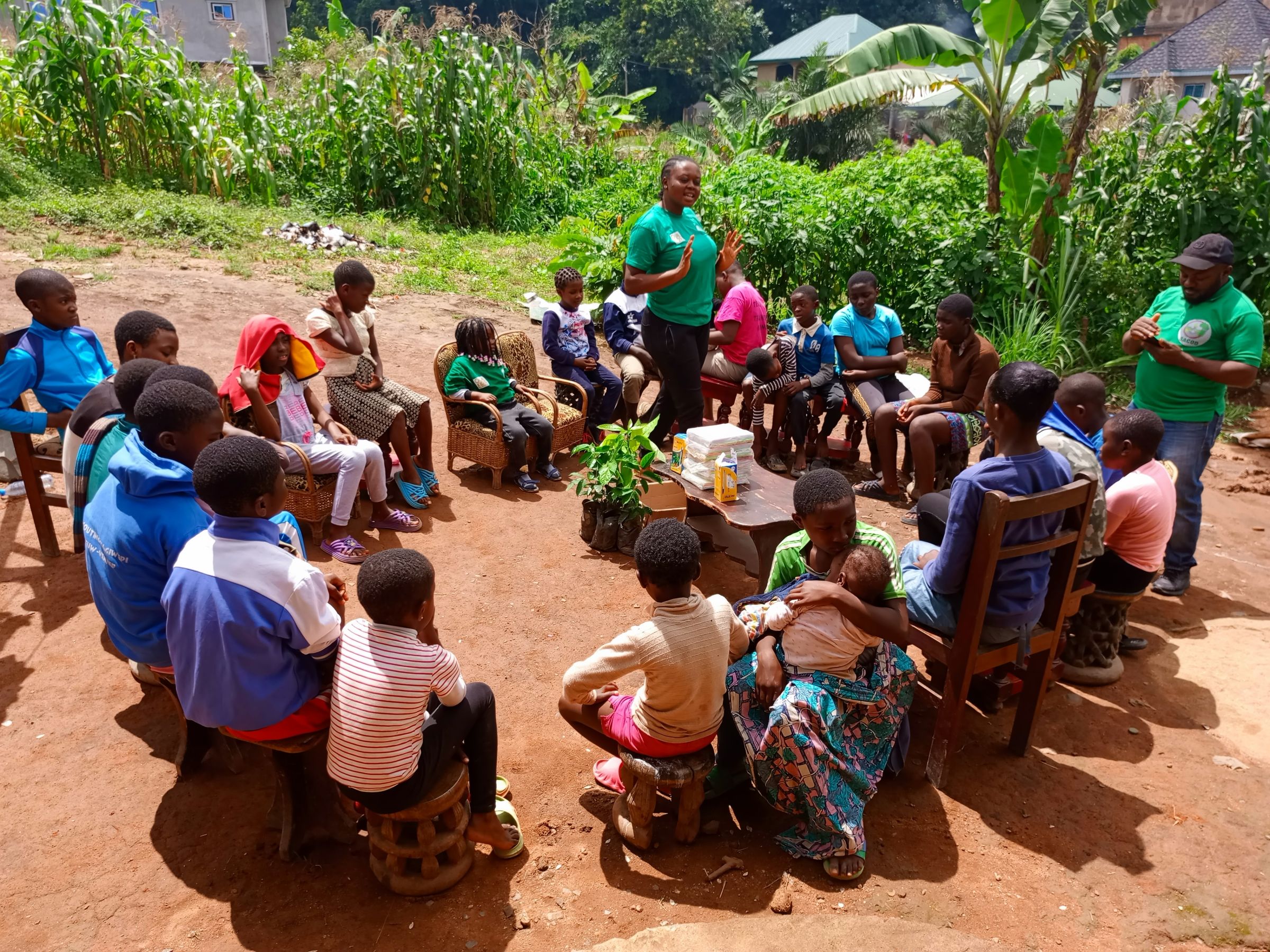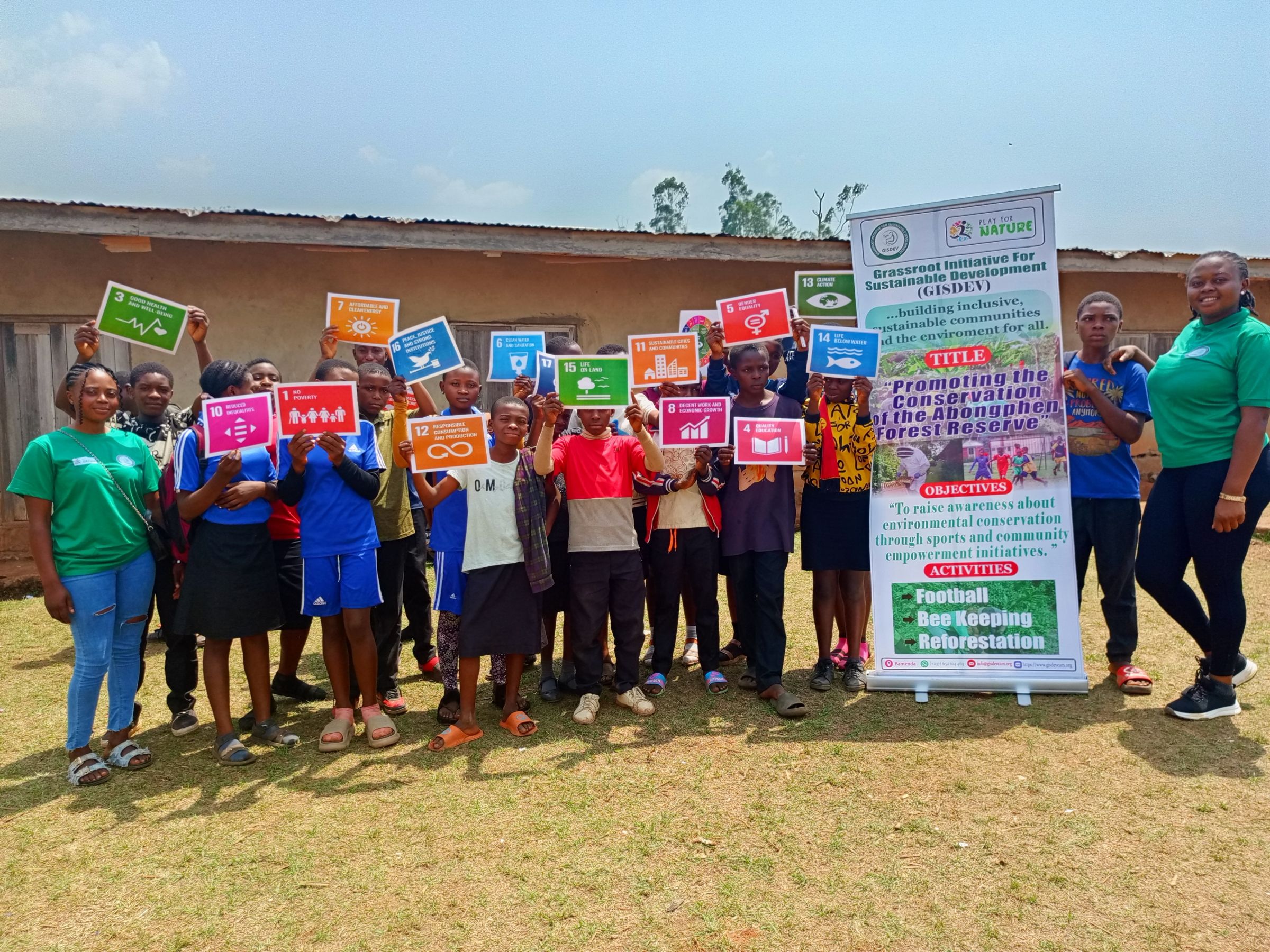Image

-
Wudindolo Fantina (she/her)
Founder and Team Lead, Grassroot Initiative for Sustainable Development( GISDEV)
- 30 Under 30
- 2025
Fantina is a young climate innovator and advocate who empowers young people and Indigenous communities in conflict-affected Cameroon through environmental education and community-driven climate action.
Cameroon, Age 28
How are you using education to build more sustainable and equitable communities? Tell us about your EE work and impact.
At the Grassroot Initiative for Sustainable Development (GISDEV), I use environmental education to empower young people and Indigenous communities in conflict-affected and hard-to-reach areas of Cameroon. My goal is to make climate education inclusive, locally relevant, and action-oriented.
Since 2022, I have led a small team of six youth educators to co-create five active climate clubs in schools across the North West region. Through these clubs, we teach students about climate change, biodiversity, and energy transition using interactive lessons, storytelling, and nature walks. Beyond classrooms, we engage communities through football matches, using halftime for climate bootcamps that bring together youth and elders to discuss local environmental challenges and solutions.
Our work has reached more than 2,500 people. This has inspired tree-planting actions, solar adoption among women, and youth-led environmental campaigns. Looking ahead, we aim to collaborate with the Délégation of Secondary Education and the Ministry of Environment and Natural Resource Management to co-develop a context-relevant EE curriculum that can expand the reach and impact of our programs.
For me, environmental education is about helping people rediscover their connection with nature and believe in their ability to create lasting change for both people and the planet.
Tell us about your journey to where you are today. What inspired you? What has your path been like?
My journey into environmental education began in Bamenda, Cameroon, where I witnessed firsthand how the sociopolitical crisis and environmental degradation were deepening community suffering. Displacement, deforestation, and open waste burning became daily realities, and I realized that most people lacked access to climate knowledge and solutions they could relate to.
As a displaced youth myself, I felt compelled to act. I founded the Grassroot Initiative for Sustainable Development (GISDEV) to make climate and environmental education accessible to marginalized communities often left behind in national policies and programs. My inspiration comes from seeing how knowledge can transform lives. I know that when young people understand the “why” behind climate change, they begin to lead community-driven change.
My path has been full of challenges including limited resources, insecurity, and skepticism but also of hope. Every time a student in one of our climate clubs starts a tree-planting campaign or a woman adopts an eco-friendly livelihood, I am reminded why I began.
Today, my work continues to be shaped by resilience, empathy, and the belief that those closest to the problem are best placed to drive the solutions.
How can people learn more about or support your work?
People can learn more about my work through the Grassroot Initiative for Sustainable Development (GISDEV), a youth-led nonprofit I founded to empower displaced and rural communities in Cameroon through environmental education, climate action, and sustainable livelihoods. We regularly share updates, impact stories, and opportunities for collaboration on GISDEV's Facebook page, LinkedIn profile, and website.
We welcome partnerships that strengthen our community-based education programs, school climate clubs, and youth capacity-building activities. Support can come in many forms, including collaborations on context-relevant EE resources, donations of learning materials, mentorship for our youth leaders, or amplifying our work through your networks.
Our next phase focuses on developing a context-relevant environmental education curriculum for conflict-affected schools and expanding our Grassroot Green Education Initiative, which aims to train community educators and reach 5,000 learners by December 2026.
By supporting our work, you’re helping build a generation of informed, resilient young leaders who can restore ecosystems, tackle pollution, and promote sustainability even in crisis-affected areas. We aim to transform education into a tool for both climate resilience and social equity.
A Little More About Me
Who (or what) keeps you hopeful for the future?
The courage and creativity of young people in crisis-affected areas keep me hopeful. Everyday, they prove that resilience can grow even in the toughest places.What makes you most excited to be an EE 30 Under 30 awardee?
I am most excited to learn from and collaborate with passionate changemakers worldwide who believe, like I do, that education can transform both people and the planet.What song or artist has uplifted you lately?
"Unstoppable" by Sia.What does being an environmental educator in a conflict-affected region mean to you?
Being an environmental educator in a conflict-affected region means turning adversity into purpose. It means using education not just to teach about the environment, but to restore hope, unity, and resilience in communities torn apart by crisis. Every lesson becomes a bridge that connects young people to their environment, their potential, and to one another. For me, it’s about showing that even in the most fragile places, seeds of change can still grow.

Fantina educates out of school children on how to care for the environment and the importance of planting trees. Photo credit: Wudindolo Fantina

Fantina educates students in FONAB on the 17 Sustainable Development Goals. Photo credit: Wudindolo Fantina

Fantina distributes solar lamps to indigenous Mbororo community members in order to help them replace kerosene lamps. Photo credit: Wudindolo Fantina

Fantina educates indigenous Mbororo women on climate change and sustainable environmental practices. Photo credit: Wudindolo Fantina

Fantina takes children on a nature walk. Photo credit: Wudindolo Fantina